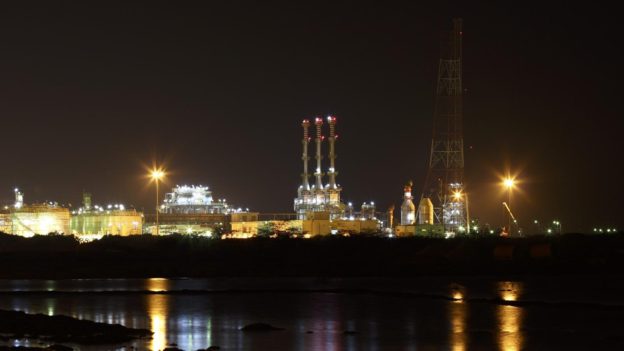India’s Reliance Industries, one of the world’s largest conglomerates, was built on oil and gas. Its founder, Dhirubhai Ambani, worked in a service station in Yemen in his teens, using his savings to start Reliance in Mumbai in the 1960s. The company’s spiritual heart is now the town of Jamnagar, in the state of Gujarat—home to Reliance’s oil refinery complex, the largest in the world.
So when Mukesh Ambani, Dhirubhai’s son and Reliance’s current chairman, announces a $10 billion investment into renewable energy, it feels like a milestone—like the twilight of fossil fuels has deepened a little further.
India is still oil country
If it was only concerned about the short term, Reliance didn’t have to move into renewables. The world is still in a protracted spell of peak oil—an extended period of maximum oil production that will eventually wane. Peak gas is yet to come; one forecast, by McKinsey, expects that milestone to arrive around 2037. Last year, even when oil demand slumped during the pandemic, Reliance still earned a profit of $5.7 for every barrel of crude oil that it processed, and analysts expect that margin to go back up as demand for oil recovers.
Just as importantly, Reliance doesn’t face the kind of environment, social, and government-related (ESG) pressures from civil society that oil giants in the West do. There are no activist investors like Engine No. 1, which recently installed three candidates on ExxonMobil’s board, to turn the firm away from fossil fuels. There is no push for Indian banks to taper off financing of oil and gas projects, as there is in Europe and even the US. There are no courts ordering Reliance to cut emissions, as happened recently with Shell in the Netherlands.
And while India has set itself climate-related energy targets—to install 450 gigawatts of renewable energy production by 2030, for example, and to bring emissions down to 33-35% below 2005 levels by 2030—its government has also pointed out the unfairness of expecting developing countries to switch away from cheap fossil fuels as quickly as developed nations.
Oil and gas are examples of these cheap fuels, and in 2015, prime minister Narendra Modi declared that India would only import 67% of its oil and gas needs by 2022. Between January and April of this year, though, India imported 77.1% of the oil and gas it used. As a result, the government is happy to encourage domestic production, and India’s crude oil usage is expected to grow to 500 million tons by 2040, up from 221.5 million tons in 2017.
Mukesh Ambani sees opportunity in renewables
If, despite all this, Mukesh Ambani is keen to invest heavily in renewables, it means he has seen enough straws—related to climate change, financing, and public sentiment—to recognize which way the wind is blowing. Like his father, Ambani plays long games, to ensure that Reliance will thrive not just in his generation but in the next.
He will know that fossil fuel use cannot continue sustainably. He will also know that India must increase its spending on renewable energy, and that sufficiently pliant governments can turn this into yet another sector for Reliance to corner. At the moment, few other Indian conglomerates have the capital to invest in the infrastructure of renewables. The price of that infrastructure is already dropping the world over. Ambani wants to make certain that he stakes a claim upon India’s inevitable future before others can afford to do the same.





